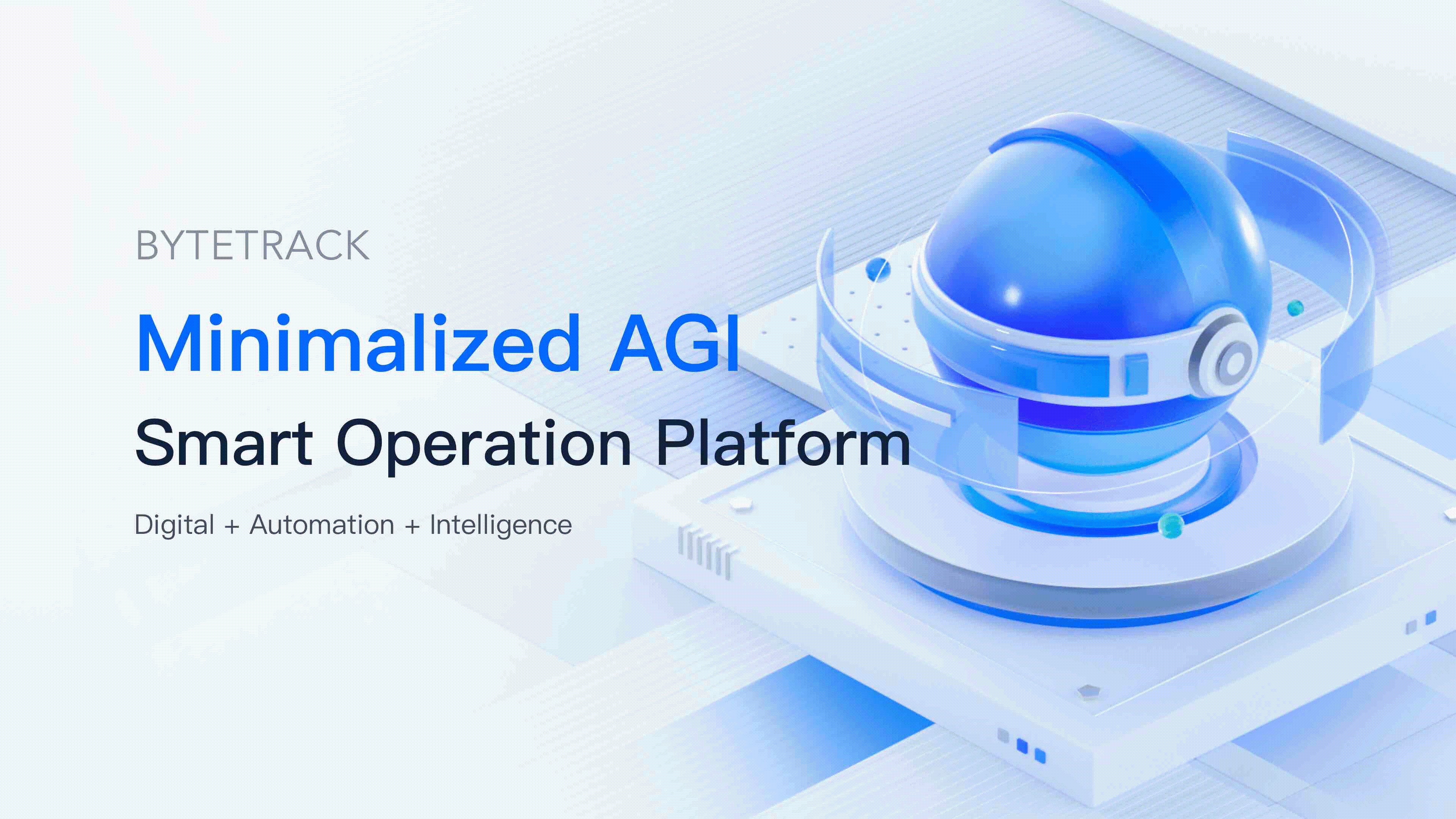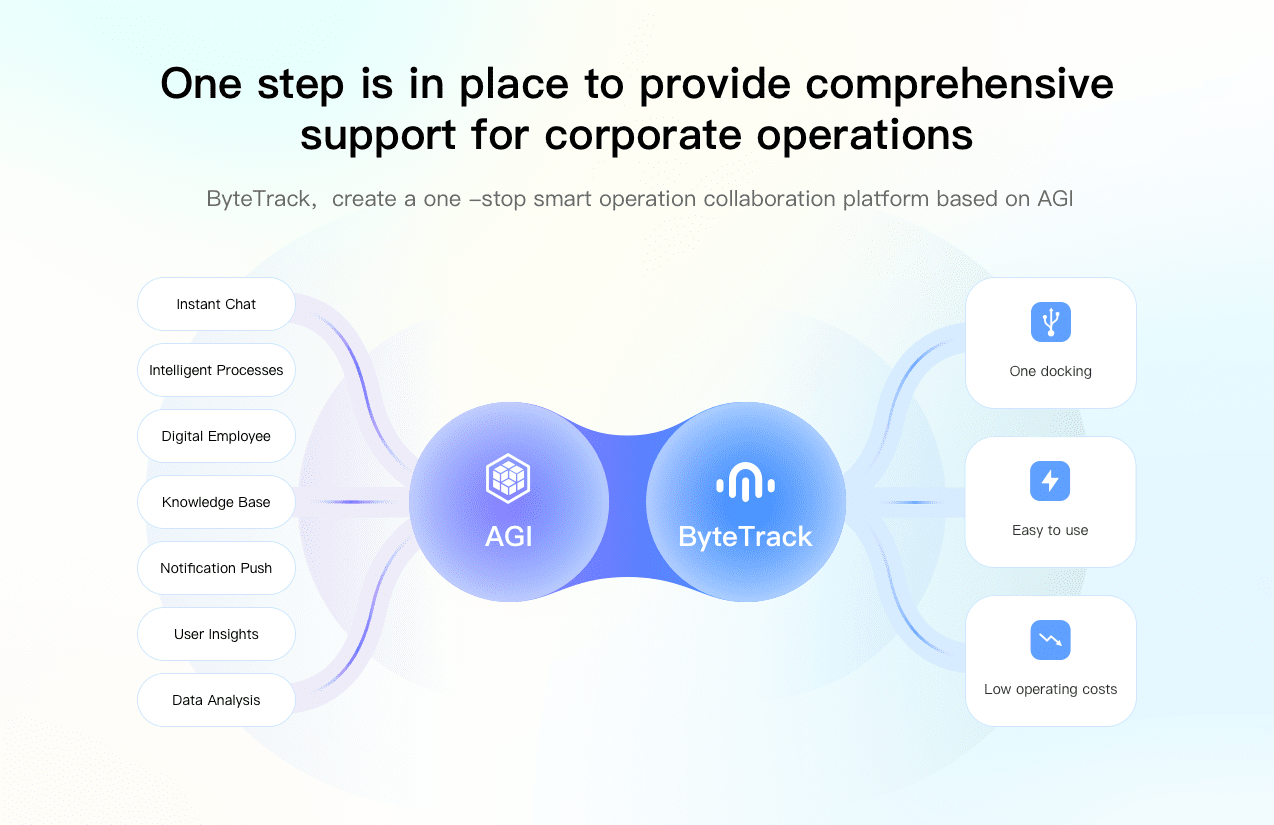Why Customer Service is the Key to Long-term Business Success
ByteTrack uses its advanced AI customer service system to help companies enhance their support, achieving notable success.
I. What is Customer Service?

Customer service refers to the series of assistance, consultations, technical services, problem-solving, and after-sales services provided by a company after delivering its products or services. A quality customer service can not only promptly solve consumer problems but also anticipate and meet their needs, providing them with an experience beyond their expectations. Therefore, investing in improving customer service quality can enhance customer satisfaction and loyalty, bringing more economic benefits to the company.
II. Methods of Customer Service
1. Human Front Desk: A service method provided face-to-face by professionals, including product display, product consultation, shopping guidance, after-sales service, etc. The human front desk needs to have good product knowledge and service skills to provide customers with an instant and personalized service experience. However, customers must visit the designated location in person to receive the service, which may involve significant travel and time costs.
2. Online Form Feedback: A system provided through the company's website or application, allowing customers to fill out and submit forms for questions, suggestions, or complaints. Customers can detail their issues in the form, expecting a solution. However, this method usually takes a long time to receive feedback, making it difficult to meet customers' needs in a short time.
3. Voice Customer Service: A service method involving real-time voice communication with customers via phone or voice chat software. Customers can call the company's customer service number or use voice chat features to communicate with professional customer service personnel for problem-solving or assistance. Compared to the previous two methods, this one does not require significant time and travel from customers and avoids long waiting times for replies. However, a large volume of customer inquiries can increase the workload for human customer service, possibly leading to delays in attending to every customer. Additionally, voice communication is less effective for sharing document-related information.
4. AI Customer Service System: The AI customer service system utilizes artificial intelligence technology to provide an efficient and intelligent customer service solution. For example, ByteTrack 's AI customer service system can understand customers' natural language inputs, provide quick responses and personalized services, and feature data collection, problem categorization, and knowledge base query functionalities. Compared to traditional customer service methods, the AI customer service system can seamlessly collaborate with human customer service to enhance overall service efficiency and maintain high performance when handling large volumes of customer inquiries, avoiding the workload pressure on human customer service. Moreover, the AI customer service system can handle customer needs through text and multimedia formats, addressing the shortcomings of voice customer service in document communication.

III. Why is AI Customer Service the Best?
AI customer service is bringing revolutionary changes to the internet industry, especially in the Web3 sector. The application of AI systems in Web3 customer service has significantly improved the efficiency and quality of user support. These intelligent systems can operate 24/7, responding quickly to user queries, particularly excelling in handling complex concepts.
In the Web3 industry, the convenient access provided by AI customer service easily becomes an important user support channel. Integrating AI customer service systems into business applications allows customer service to offer instant and accurate support within the environments users are familiar with. Customer service no longer needs to interact through Telegram Web, WhatsApp Web, and other platforms; instead, a single inbox can facilitate communication with customers across all channels. For example, AI customer service has been successfully integrated into the customer service systems of U Shield and Cregis, significantly improving user service efficiency and satisfaction.
1. Providing Personalized Services: AI customer service systems use machine learning and natural language processing technologies to deeply understand customers' language habits, preferences, and needs, offering more personalized recommendations and services based on this data.
2. Continuously Optimizing Service Capabilities: AI customer service systems possess self-learning and optimization capabilities. Through interactions with a large number of users, the AI customer service system can continually accumulate data and identify and improve service shortcomings.
3. Efficient and Stable Reception Capabilities: Compared to traditional human customer service, AI customer service can provide 24/7 uninterrupted service without being affected by emotions, fatigue, and other human factors. This means that users can receive timely and professional service anytime and anywhere.
Furthermore, the development team of the AI customer service system can continuously optimize and iterate the AI customer service system based on user feedback, performance indicators, and industry trends. This continuous optimization and upgrade capability allows the AI customer service to maintain high competitiveness and adaptability in the face of changing user needs and market environments.

IV. Feedback from Quality Customer Service
Quality customer service is not only a bridge for communication between businesses and customers but also an important means for enterprises to enhance market competitiveness and customer satisfaction. By providing excellent customer service, businesses can not only meet customer needs but also bring long-term benefits to themselves. The following points elaborate on the positive feedback brought by quality customer service:
1. Increased Trust: When customers receive timely, professional, and effective services, they feel the care and responsibility of the enterprise, thereby increasing their trust in the enterprise.
2. Product Optimization and Upgrades: Quality customer service can collect a large amount of feedback and opinions from customers. Based on this information, enterprises can optimize and upgrade products to better meet customers' actual needs, thereby enhancing product competitiveness and market share.
3. Customer Service Improvement: By continuously providing quality customer service, enterprises can summarize experiences and lessons, identify bottlenecks and issues in service processes, and thereby improve service efficiency and quality.
4. Promoting Repeat Business: When customers are satisfied with the products and services of the enterprise, they are more likely to become repeat customers, engage in repeat business, and even actively promote the products and services to their friends and family, thereby bringing more potential customers and business opportunities to the enterprise.
V. Examples of Quality Customer Service
In today's highly competitive environment, the product itself is no longer the only factor that sets a company apart. More and more companies realize that establishing good relationships with customers and providing quality customer service are equally critical. Top companies particularly emphasize this, knowing that excellent customer service is the key to winning customer loyalty and market competitiveness.
1. H&M: H&M uses AI customer service to enhance the customer experience. Through its AI assistant 'Ella,' customers can quickly obtain product information, inventory status, and order processing services on the website. Ella can not only instantly answer customers' common questions but also provide personalized recommendations based on customers' browsing and purchase history. When Ella cannot handle complex issues, it immediately transfers them to human customer service, ensuring that customers' needs are fully met. The introduction of AI customer service has greatly reduced the workload of human customer service and improved overall service efficiency.
2. Alibaba: Alibaba's AI customer service system 'AliMe' showcased its powerful functions during the 'Double Eleven' shopping festival. AliMe can handle a large number of customer inquiries, including order inquiries, logistics tracking, returns, and exchanges. Through natural language processing technology, AliMe can understand customers' complex problems and provide quick and accurate answers. If it encounters problems that cannot be resolved, AliMe will promptly transfer the issues to human customer service. Additionally, AliMe can proactively interact with customers, providing shopping suggestions and promotional information, significantly enhancing the shopping experience.
3. Sephora: Sephora achieves online beauty consultations and product recommendations through its AI customer service system 'Sephora Virtual Artist.' Customers can upload photos and use the virtual try-on feature to see the effects of different products. The AI assistant can also recommend suitable skincare and makeup products based on customers' skin types and preferences. When customers have further inquiries, the AI assistant can provide detailed answers and transfer them to professional beauty consultants if needed. This system not only saves customers' time but also enhances the accuracy of purchasing decisions.
4. ByteTrack: ByteTrack stands out with its advanced natural language processing system and flexible application scenarios, based on AI large models with self-learning capabilities. The platform integrates multiple functions such as intelligent customer service, smart processes, and digital employees into one. Its unique one-stop operation mode injects strong power into cross-border customer service, becoming an essential tool for independent station business improvement. After a foreign trade company integrated ByteTrack into its business system, the pressure on human customer service instantly decreased, and customer service efficiency significantly improved. The AI customer service system handled a large number of common issues, such as order status, product information, and logistics tracking. Intelligent process management automated order and complaint handling, reducing manual operation time and error rates. Digital employees continuously optimized services through data analysis and learning. When encountering complex issues, they automatically transferred them to human customer service and provided background information. After introducing ByteTrack, customer satisfaction and response speed greatly improved. The company's human customer service could focus on handling complex needs, overall work efficiency significantly increased, operating costs decreased, and market competitiveness enhanced.

VI. Conclusion
Customer service has evolved from a simple service function to a core element influencing a company's overall value and competitiveness. In this customer-centric era, every company should deeply understand and value customer service, striving to provide services that exceed customer expectations to achieve sustainable development. By introducing advanced AI customer service systems like ByteTrack, companies can significantly enhance service efficiency and quality, reduce human customer service pressure, and stand out in the fierce market competition.














One-stop solution, providing comprehensive support for business operations
ByteTrack,create a one-stop AI-based intelligent operational collaboration platform for you
- Resource
- ByteTrack academy
- Help center
- Developer center
- Contact us
-
 WeChat Official Account
WeChat Official Account Business WeChat ID
Business WeChat ID


 share
share


